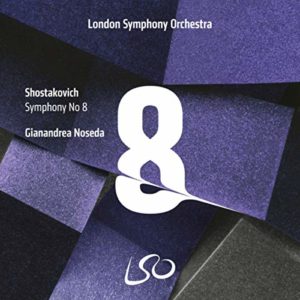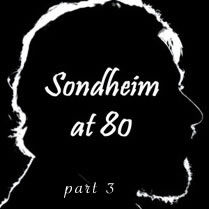GRAMOPHONE Review: Shostakovich Symphony No. 8 – London Symphony Orchestra/Noseda
 I always think that the opening bars of this war-torn essay suggest the flip side, the oppressively dark side, of the Fifth Symphony. No more ‘A Soviet artist’s reply to just criticism’, simply a Soviet artist’s outrage. The restless, halting opening paragraph is shot through with a yearning lyricism – out of reach but not out of bounds. It’s like the piece simply doesn’t know which way to turn to escape the darkness. Gianandrea Noseda (one-time principal guest conductor of the Mariinsky Theatre) has a firm handle on the depth and breadth of the symphony chronicling his way through its empty wastes and bone-crushing upheavals of rolling percussion. The first movement’s long oration for solo cor anglais – Shostakovich’s instrument of choice for the desolate – is typical of the London Symphony Orchestra’s intense and deeply felt playing throughout.
I always think that the opening bars of this war-torn essay suggest the flip side, the oppressively dark side, of the Fifth Symphony. No more ‘A Soviet artist’s reply to just criticism’, simply a Soviet artist’s outrage. The restless, halting opening paragraph is shot through with a yearning lyricism – out of reach but not out of bounds. It’s like the piece simply doesn’t know which way to turn to escape the darkness. Gianandrea Noseda (one-time principal guest conductor of the Mariinsky Theatre) has a firm handle on the depth and breadth of the symphony chronicling his way through its empty wastes and bone-crushing upheavals of rolling percussion. The first movement’s long oration for solo cor anglais – Shostakovich’s instrument of choice for the desolate – is typical of the London Symphony Orchestra’s intense and deeply felt playing throughout.
Perhaps I miss that last degree of trenchancy and abandon in the inner movements – the strident second movement with its shouty woodwinds and spooky trio and the scarifying moto perpetuo of the third where the LSO’s first trumpet duly finds the sour tang of the militaristic trio (if not quite the coarse edge of the old traditional Russian trumpet sound). It all feels just a little too ‘controlled’, urbane even.
But then the numbing effect of the eternal passacaglia takes hold (the apogee, I always think, of the kinship between Shostakovich and Britten – think Grimes) its slow processional disturbed only by mournful overlaid woodwind arias, and Noseda certainly has the measure of its concentration.
I think the single most extraordinary moment in the entire symphony is that most enlightening of modulations (just a glimmer of hope after all the carnage) into the final Allegretto. The trick is (and Noseda pulls this off) is to make it sound at once unexpected and inevitable. Notwithstanding being crushed by yet one more seismic upheaval the sweet, if cautious, consolation of the final pages is beautifully achieved here. There is one final question mark at the end. Of course, there is. But its composer lives to fight another day.
You May Also Like

GRAMOPHONE Review: Bartók Concerto For Orchestra, Four Orchestral Pieces – Netherlands Radio Philharmonic Orchestra/Canellakis
27/06/2023
SONDHEIM at 80: In Good Company – Part Three
02/09/2011

